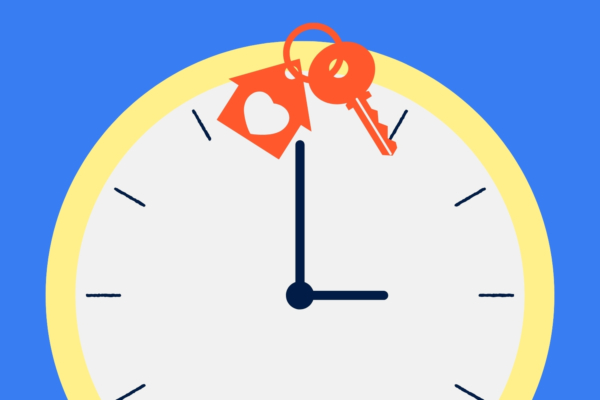
Choosing the Right Real Estate Agent

So you’ve decided to buy or sell a home. Congratulations! While the end results are very exciting, the process itself can be daunting. Luckily, there are people whose job is to help you along the way—real estate agents! But how do you know if an agent is the right fit for what you need? It’s time to learn more before diving into the home buying or selling process.
Types of Agents
Let’s start with the basics: what is a real estate agent? There are several types of professionals in the real estate industry, and they’re different for a reason.
Apply Now
Ready to find your next mortgage? Begin your journey with Amplify today!
Real Estate Agent
A real estate agent is licensed to help people buy, sell, and rent properties. They bring together buyers and sellers, and/or renters and owners, and organize the transactions that occur between the two parties. They make their money through commission, usually on the sale price of a property. Real estate commission varies and is always up for negotiation, but it is typically between 5% and 6% of the price of the property being purchased.
Broker
A real estate broker is a real estate agent who takes it a step further and receives additional education so that they can receive a real estate broker license in their state. As a licensed broker, they can go on to start their own brokerage and hire other real estate brokers to work under them. Brokers get paid by taking a portion of the commissions made by the real estate agents that they employ, in addition to any commission they make on their own deals.
Realtor
A realtor is a real estate agent who is a member of the National Association of Realtors, or the NAR. The NAR is a professional organization for real estate agents and other industry professionals, including property managers, appraisers, brokers, etc. Getting a license requires you to complete coursework and take a real estate license exam. To maintain Realtor status, you must pay annual membership fees, and agree to adhere to the NAR’s standards and code of ethics.
What do you need the agent to do?
When seeking an agent, it’s important to also consider what you need the agent to do: help you purchase a home or help you to sell your home.
Listing Agents
A listing agent represents someone looking to sell their home. They walk you through the process of selling your home, including determining the selling price, ensuring that your listing gets exposure, negotiating with potential buyers, and more.
Buyer’s Agents
A buyer’s agent is an agent who assists people looking to buy a home. They will help you find homes for sale that meet your needs and fit into your price range. Once you’ve found a house that you like, a buyer’s agent will help you make the offer and walk you through all the steps of that process. If applicable, a buyer’s agent will help you negotiate with the seller.
Buyer’s agents get paid a commission when you purchase a house. The seller of the house typically pays the commission, which is then split between the seller’s agent and the buyer’s agent. As mentioned, the average real estate commission is between 5% and 6% of the purchase price of the home.
Dual Agent
Occasionally, you will come across a dual agent, where the agent represents both the buyer and the seller. Despite seeming like a conflict of interest, dual agency is legal in most states. The choice to work with a dual agent is a personal preference; some may feel comfortable working with a dual agent, and some others may want to work with an agent who represents their interests only.
Choosing an Agent
Wondering how to choose a real estate agent? It’s easy if you know what to look for. Here are some things to consider when looking for an agent to help you buy a home.
- What are you looking for in a home? Identifying this before you even start looking for an agent will make it easier for you to find an agent who can best meet your needs. You wouldn’t, for example, want to work with an agent who only has experience with clients with a much higher budget than you.
- How will the agent be paid? As mentioned, real estate commission is typically covered by the seller, and split between the listing agent and the buyer’s agent, with the average commission being 5%-6% of the purchase price. But before you agree to work with any agent, be sure to confirm the details of how that agent will be paid, so there are no surprises.
- How well do you click with the agent? Whoever you work with is going to be a huge part of this major life event, and you will be talking to them often. If you don’t feel like they’re on the same wavelength as you, or there are any red flags like pushiness or poor listening, it’s ok to move on to a different agent!
- How will you communicate? Everyone has different preferred methods of communication — some prefer to email, some prefer to text, some prefer to call, and some prefer to meet in person. A good agent will ask you what your preferences are from the very beginning. When deciding if you want to work with an agent, be sure to identify and convey how you prefer to communicate throughout the process, and ensure that they are willing to work with you accordingly.
Additional Steps During Your Agent Search
Beyond knowing what you want and asking the right questions, here are some additional tips for doing your due diligence when searching for a real estate agent.
- Perform background research. Nowadays, there are so many online resources available that you can use to do background research on potential agents. You can look at online profiles like Google and Yelp for reviews. You can also verify an agent’s credentials and confirm that they are indeed have a real estate license in your state. And you can even see if they have been subject to any disciplinary action from entities like the state real estate board or the Better Business Bureau.
- Research your area first. If you already know where you’d like to buy a house, take a day to scout out the neighborhood, looking at “for sale” signs and noting agents’ names. If you notice one agent’s name keeps coming up on the signs, they may know the area well. If you’re selling your home, go one step further and attend some open houses. Not only will you get a sense of what other homes are going for, but you’ll also see how the seller’s agent interacts with prospective buyers.
- Ask for referrals from family and friends. Word of mouth goes a long way. If possible, ask around to your friends and family and see if anybody has an agent they recommend. Knowing that someone you trust has had a positive experience with that agent can go a long way in making you feel more assured that you are in good hands. Just be sure to keep your needs in mind, as they may differ from those of the friend or family member making the recommendation.
- Request testimonials. If you like an agent and think you want to move forward with working with them, it is never a bad idea to ask for references or testimonials. Credible real estate professionals will be happy to provide them. When speaking to references, ask them what went well, and what didn’t go well. These conversations could save you a lot of trouble if a reference gives more detail on their experience with the agent.
Let the Search Begin
Finding the right real estate agent can take some time, but it’s an effort that will save you a lot of energy and potential frustration in the future. The right real estate agent will deeply understand your needs and can help you find the home that is perfect for you, so that you can feel a little less pressure as you navigate this major life milestone.
Don’t forget about your lender in this process—if your lender is local and knows your market, they may be able to recommend an excellent real estate agent.
Looking for a local mortgage lender?
Learn more about Amplify’s mortgage products and apply today!

